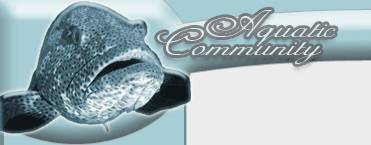Heart valve dysplasia in dogs
Heart valve dysplasia is an inherited heart defect in dogs. There are many different types of heart valve dysplasia, e.g. mitral valve dysplasia and tricuspid valve dysplasia.
What is mitral valve disease?
This type of heart valve dysplasia consist of a defect in the mitral valve, which is the left atrioventricular valve in the heart of the dog. The atrioventricular (AV) valves are responsible for making blood flow from the atria to the ventricles each heartbeat. In a dog where the mitral valve is defect, a backflow of blood will occur and blood will flow back into the left atrium. In some dogs, mitral regurgitation will occur. Due to this leak, the heart will not pump blood to the body as efficiently as it would in a healthy dog.
Mitral valve disease symptoms in dogs
This type of heart valve dysplasia can go on for years without you noticing, but over time the heart of your dog will change in order to compensate for the increased work it is forced to carry out in order to pump blood to the entire body. The problems are worse for overweight dogs, dogs kept on an improper diet, and dogs that do not receive regular exercise.
Early symptoms of this type of heart valve dysplasia include exercise intolerance, breathing difficulties, and coughing. Coughing often occurs at night or when the dog is resting. These symptoms tell the dog owner that the dog is no longer able to compensate for the mitral valve problem. Fluids have started to accumulate in the lungs of the dog. The dog can also show symptoms such as weakness and fainting.
Mitral valve disease treatment for dogs
Unfortunately, there is currently no cure for this type of heart valve dysplasia. The vet can however administer medical treatment that will make your dog feel better. The exact treatment for this heart valve dysplasia will depend on the severity of the problem, and can for instance include diuretics and drugs that support that heart. The vet will normally recommend exercise limitations and a diet low in sodium for the dog.
What is tricuspid valve dysplasia?
Tricuspid valve dysplasia is a type of heart valve dysplasia where the right atrioventricular (tricuspid) valve is deformed. The atrioventricular vavle in the heart is responsible for making blood flow from the atria to the ventricles. If the valve is deformed, it can cause blood to flow back into the right atrium or lead to tricuspid regurgitation. A narrowing of the valve can also be present in dogs suffering from this type of heart valve dysplasia. All these problems make the heart of the dog work less efficiently.
Tricuspid valve dysplasia symptoms in dogs
Many dogs with tricuspid valve dysplasia live for many years without showing any signs of heart disease. In more severely affected dogs, significant regurgitation and/or narrowing of the valve can cause to right-sided heart failure, which is deadly unless the dog received immediate treatment. Cool limbs, exercise tolerance, and fainting are all symptoms of serious tricuspid valve dysplasia that needs treatment. The dog can also display a distended abdomen due to fluid accumulation or en enlarged liver.
Tricuspid valve dysplasia treatment for dogs
If the dog develops symptoms of heart disease, several different effective therapies are available to treat this form of heart valve dysplasia. The vet can for instance administer diuretics to get rid of accumulated fluids and medications that will support the overworked heart. The vet will normally also recommend exercise restrictions for your dog and a diet low in sodium. Unfortunately, it is currently not possible to cure the problem with heart surgery, but it might be in the future.
Cardiovascular and circulatory problems in dogs: (click for more info)
Aortic stenosis in dogs
Congestive heart failure in dogs
Degenerative mitral valve disease in dogs
Dilated cardiomyopathy in dogs
Heart valve dysplasia in dogs
Hemolytic anemia in dogs
Patent ductus arteriosus in dogs
Pericardial effusion in dogs
Pulmonary hypertension in dogs
Pulmonic stenosis in dogs
Thrombocytopenia in dogs
Ventricular septal defect in dogs
Atrial septal defect in dogs
Tetralogy of Fallot in dogs
Von Willebrand disease in dogs
